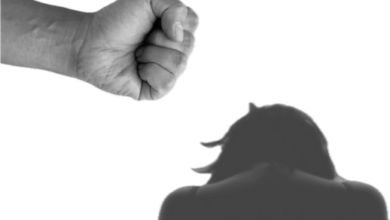When Medicine Speaks in Court: How Medical Experts Help the Justice System Understand the Body

Sometimes, the truth lives not in the words shouted across a courtroom, but in the fine print of a medical chart. In legal cases where someone’s health—or life—hangs in the balance, no amount of dramatic cross-examination can match the weight of a calm, clinical explanation from someone who truly understands what went wrong. Or what didn’t.
That’s where medical expert witnesses come in. These are doctors, nurses, and specialists who step into the courtroom, not as advocates for either side, but as translators of science and facts. Whether it’s a chronic pain claim, a questionable diagnosis, or a suspicious autopsy report, their insight can change the course of a case.
And in a world where medicine and law often speak completely different languages, their role is more critical than ever.
Why the Courtroom Needs Medical Experts
Think about it: When a jury of everyday people—teachers, retirees, baristas—is asked to evaluate whether a surgeon made a mistake, or if an injury justifies long-term disability, how are they supposed to make sense of it all? They’re handed thousands of pages of clinical records, scans, and terminology that might as well be written in code.
This is where a medical expert witness becomes the courtroom’s compass. They interpret the records, assess the standard of care, and explain in everyday language whether proper medical decisions were made.
And this doesn’t just help the jury—it helps the attorneys, too. Medical experts often assist with strategy, timelines, and depositions. Their objective analysis helps both sides better understand the reality of what happened, medically speaking.
But the field of medical expert witnesses is broad. Some focus on trauma or emergency care. Others specialize in oncology, orthopedics, or pharmacology. And when it comes to cases involving long-term pain, end-of-life care, or disputed autopsy results, specific types of experts are often called to the stand.
The Nuance of Pain: When a Pain Management Expert Testifies
Pain is invisible. You can’t scan for it or see it on an X-ray. But it can be life-changing—and in court, it’s often misunderstood or underestimated.
This is where a pain management expert witness plays an incredibly valuable role. These specialists understand not just what pain feels like, but how it manifests medically and neurologically. They can explain to a jury how a certain injury might lead to chronic conditions like complex regional pain syndrome (CRPS), fibromyalgia, or post-operative neuropathy.
Let’s say someone was rear-ended at a red light. Months later, they still can’t sit at a desk for more than 30 minutes without burning pain down their spine. The defense might argue they’re exaggerating. But a pain expert can step in and explain the medical reasons why that pain is real—and debilitating.
They also understand the risks associated with pain management treatments, like long-term opioid therapy or spinal injections. Their testimony can highlight not just what a patient feels, but what their doctors did (or didn’t do) to help.
When chronic pain becomes a legal question, a good expert gives the facts a voice—and helps others feel what the patient can’t show.
The Science Behind the Scene: Pathology Experts and the Details That Matter
Now, let’s flip the scenario. Imagine a patient dies unexpectedly after a routine surgery. The family suspects something went wrong, but the hospital insists everything was done by the book. The surgeon’s notes are clean. The anesthesiologist followed protocol. So what happened?
That’s when a pathology expert witness may be called.
Pathologists are the detectives of medicine. They perform autopsies, examine tissue samples, and study slides under microscopes to understand disease and death at a cellular level. When they testify, it’s not speculation—it’s hard evidence.
A pathology expert can identify signs of infection that went unnoticed, bleeding that wasn’t addressed, or pre-existing conditions that may have changed the treatment plan. They don’t rely on bedside accounts—they rely on biology. And their findings often tell the real story of what happened, whether or not anyone in the room witnessed it.
Their testimony can be critical in wrongful death suits, misdiagnosis cases, or malpractice claims involving cancer or rare illnesses. They don’t just look at what was done—they look at the outcome, piece by microscopic piece.
One bolded takeaway? In complex legal disputes, a trusted medical expert witness, pain management expert witness, pathology expert witness isn’t just helpful—they’re often the most important voice in the room.
Behind the Scenes: What Medical Experts Actually Do
Before they ever take the stand, medical expert witnesses do a whole lot of heavy lifting.
They comb through thousands of pages of records. They create timelines of treatment and symptoms. They evaluate whether the care delivered aligns with what a competent provider would’ve done in the same situation.
Then they write detailed reports—usually filled with citations, clinical guidelines, and evidence-based assessments. These reports may never be read aloud in court, but they form the backbone of depositions, cross-examinations, and settlement decisions.
In some cases, a solid report from a medical expert is enough to get a case settled before trial. In others, it gives the judge or jury the framework they need to understand the testimony when it’s finally delivered.
What Makes a Great Expert?
Let’s be honest—not every doctor is cut out for this work. Being an expert witness requires more than credentials.
The best ones are still active in their field or have a long, reputable career behind them. They’re objective. They don’t overreach or make claims they can’t back up. And, most importantly, they can communicate. In court, facts are only as valuable as your ability to explain them.
They should be calm under cross-examination, thorough in their research, and crystal clear when answering a yes-or-no question that could shape the entire verdict.
Final Thoughts: Medicine as a Mirror
Courtrooms aren’t kind to ambiguity. But medicine is full of it. So when the two intersect, it takes a rare kind of professional to navigate both with honesty and clarity.
Medical expert witnesses—whether they’re focused on pain, pathology, or broader clinical care—don’t just bring knowledge. They bring balance. They help make sure the story told in court reflects the full picture, not just the pieces that support one side or the other.
And in the pursuit of justice, that makes all the difference.



